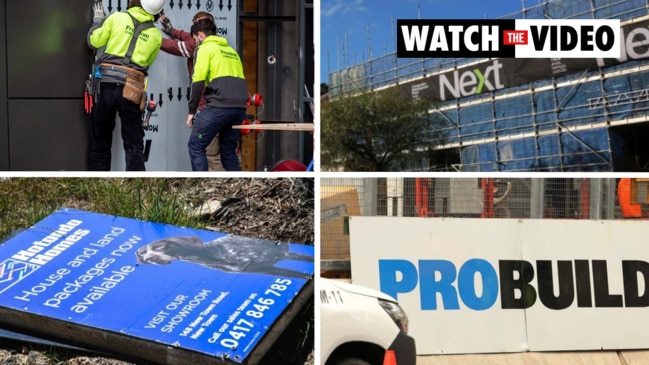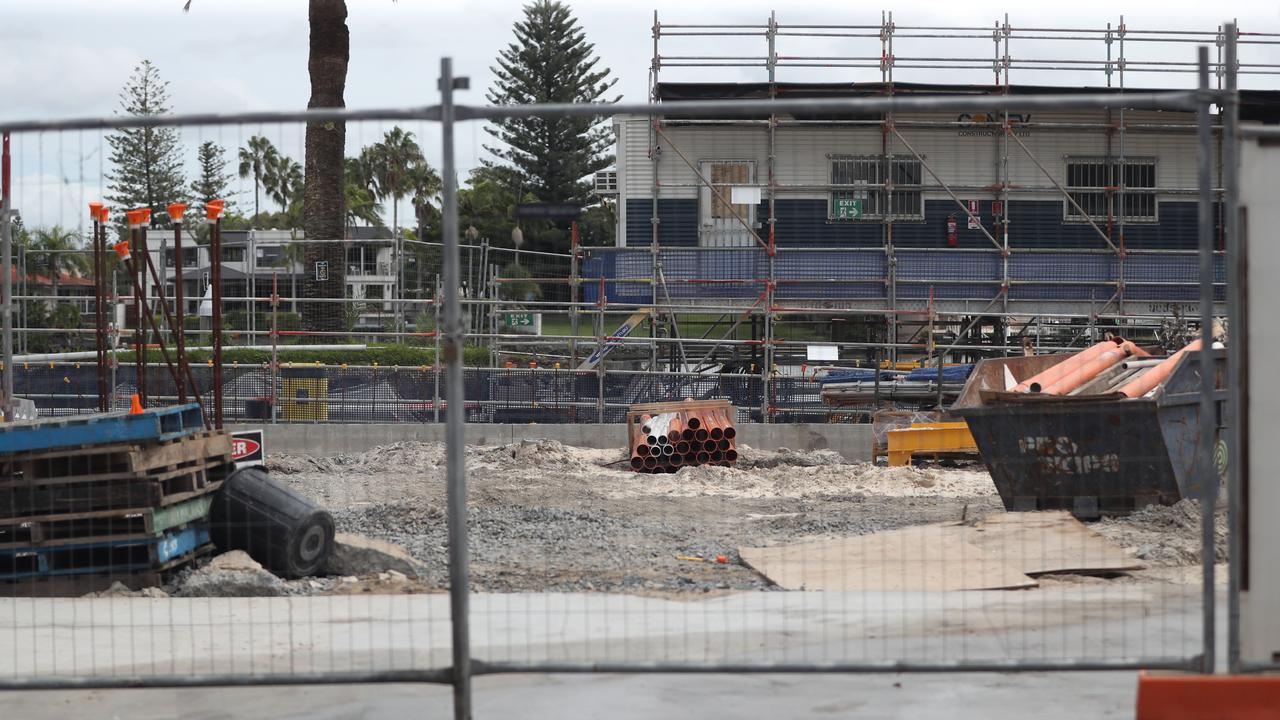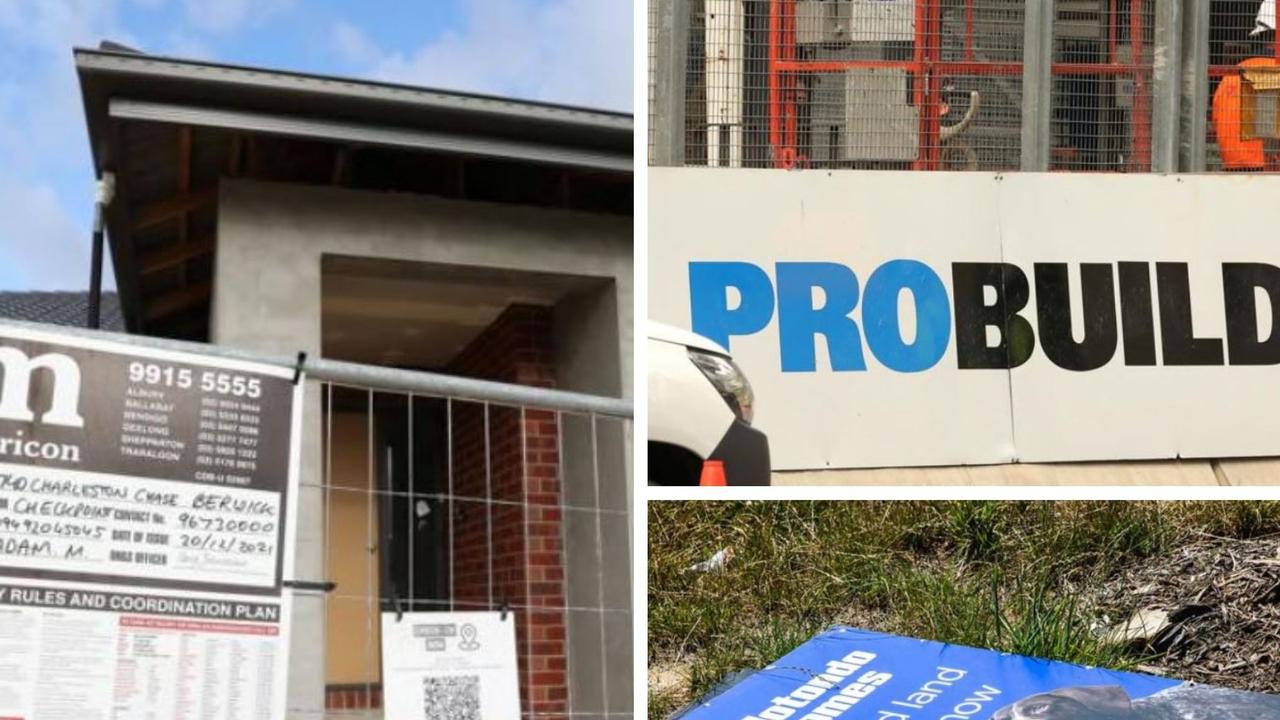High costs and drop in housing approvals means more builders could ‘hit the wall’
Worrying new data suggests a devastating wave of construction company collapses will continue into the second half of the year.

An unexpected drop in housing approvals has prompted a prediction from economists that even more construction companies will collapse over the coming months.
Data from the Australian Bureau of Statistics on Tuesday showed approvals for new housing in April slipped another 2.4 per cent thanks to an ongoing decline in new units and townhouses.
The market had earlier tipped that total housing approvals would grow by 2 per cent for the month after a 19.2 per cent nosedive in March.

But the April figures were a surprising deviation from market expectations and – combined with soaring material and labour costs – offered another hint that Australia’s beaten-down construction sector is set for more pain.
Privium, Probuild, Condev and Pivotal are among a slew of prominent building companies that have collapsed in recent months and left homeowners and contractors in limbo, while reports have also been circulating that Metricon is under pressure.
BIS Oxford Economics senior economist Maree Kilroy said Tuesday’s disappointing figures reflected households facing higher interest rates and build costs.
She said those pressures would likely remain even as activity slowed.
“Given the huge backlog of work and strength of global commodity prices, we believe that strong building cost growth will continue into the next financial year,” Ms Kilroy said.
“Pressure being faced by home builders is not set to abate in this environment, and we expect more builders to hit the wall, especially less capitalised small to medium-sized operators.”
Building approvals fail to rebound after a large fall last month, approvals in NSW lead the monthly decline pic.twitter.com/VOUapqHJfv
— Alex Joiner (@IFM_Economist) May 31, 2022
ABS building approvals showed there were just 14,908 dwellings approved in April, down from 18,992 in March and – according to IFM economist Alex Joiner – well off the 15,128 monthly average over the past 22 years.
Private houses held steady above 10,000 approvals, while a 6.1 per cent decline in units, townhouses and attached dwellings dragged down the national result.
House building approvals grew in Queensland, while units and townhouses improved in Victoria.

South Australia experienced a significant jump in both categories, while NSW fell.
Renovation demand remains robust across Australia, up 6.6 per cent nationally.
Ms Kilroy said the recent flooding events in eastern Australia provided further upside.



